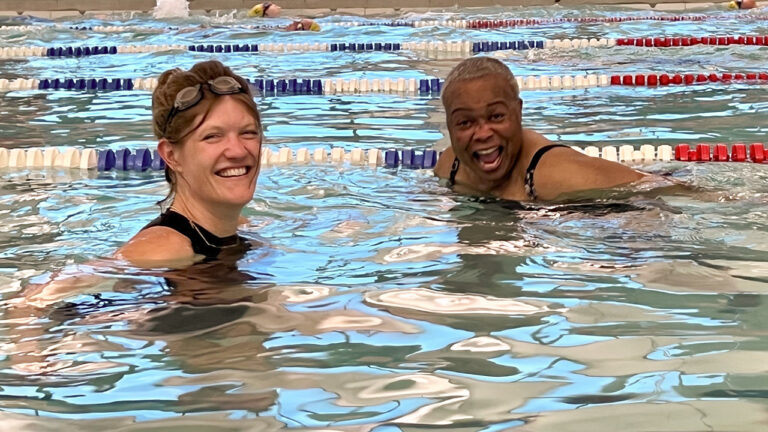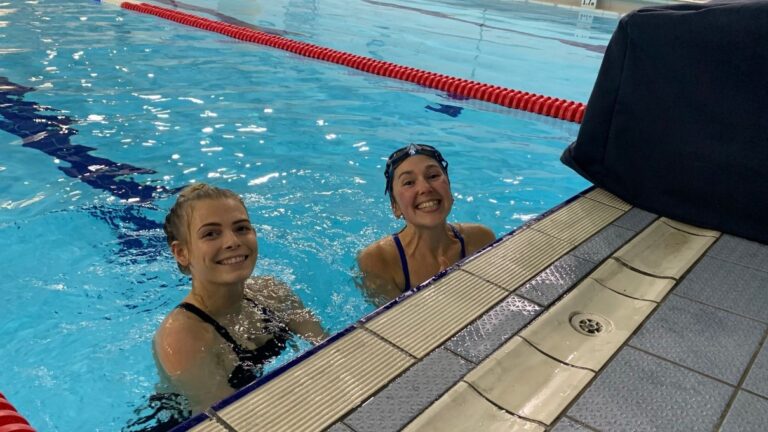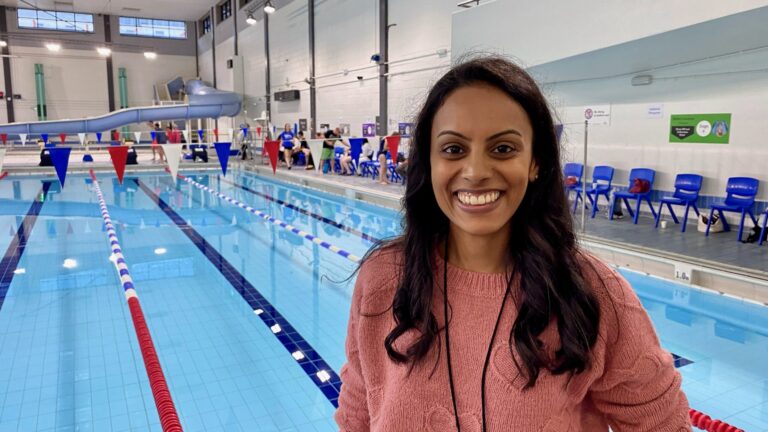This week, we have the pleasure to get some insights from Brandon, who has been swimming with the club Pimlico Puffins for 2 years. He has Asperger Syndrome and wrote some tips for working with people with autism.
What Is Autism?
Autism is a lifelong developmental disability which affects how people communicate and interact with the world. Watch this short video for more details.
Autism is a spectrum condition: all autistic people share certain difficulties, but being autistic will affect them in different ways. These difficulties express themselves in widely diverse ways in different people. For example, one person may not say much but another may be very talkative.
Brandon adds that autism is often accompanied by physical clumsiness and lack of coordination, although this is not part of the diagnosis.
It’s worth noting that those individuals often have other disabilities in addition: attention deficit hyperactivity disorder (ADHD), obsessive compulsive disorder (OCD), vision or hearing problems. They tend to make autism an even more difficult condition, for example Brandon’s anxiety generated by being in an unfamiliar place is exacerbated by his eyesight problems.
Specificities around Asperger Syndrome
People with Asperger syndrome don’t have the learning disabilities that many autistic people have, but they may have specific learning difficulties. They may have fewer problems with speech but may still have difficulties with understanding and processing language.
Brandon says that the difference between autism and Asperger Syndrome (sometimes termed as ‘high functioning’ autism) is that people with Aspergers acquired language at the ‘correct’ point in their childhood. In other words, all the child’s developmental milestones happened at the expected time in their life.
It is not true that Aspergers is a ‘mild’ form of autism. Aspergers can manifest itself in more or less severe ways in different individuals. Brandon thinks that the concept of an ‘autistic spectrum’ captures one aspect of the complexity of autism but that the idea of an ‘autistic constellation’ is possibly more accurate.
Some people with Asperger syndrome also have mental health issues or other conditions, meaning people need different levels and types of support. People with Asperger syndrome see, hear and feel the world differently to other people.
Tips for Working with Swimmers with Those Conditions
Having swum for 2 years with volunteers, Brandon has great experience in the best way of working with swimmers with those conditions. He has listed below some tips volunteers can use to ensure the swimming sessions go smoothly.
Fact
Since autism is a spectrum condition, what you know about a person doesn’t necessarily apply to other people. Also, individuals, especially adults, are often successful at concealing, or ‘camouflaging’, their autistic traits. This emphatically does not mean that life is not difficult for them. Indeed, the effort of camouflaging often compounds the problems of being autistic.
Tip
Be open and get to know the person before making assumptions about them.
Fact
Those individuals respond well to very clear, unambiguous instructions and the setting of clear goals.
Tip
Avoid using irony, sarcasm, figurative language, rhetorical questions, idioms or exaggeration as autistic people can take these literally. If you do use these, explain what you have said and be clear about what you really mean to say.
Fact
In general, those individuals do not respond well to “small talk”. This should not be seen in a negative way, or as a sign that the individual is unfriendly.
Tip
Simply get on with the matter in hand.
Fact
Those individuals are often very capable of great focus and concentration.
Tip
These qualities should be utilised when coaching them.
Fact
Those individuals often do not visibly express emotions but it does not mean that they do not feel emotions.
Tip
Don’t be worried if at the end of the swimming session, they are not cheerful – that doesn’t mean they haven’t enjoyed it. You may even ask questions about how they felt about it and what they liked most or least.
Fact
Sensory overload can be a problem for people with autism. Sounds in swimming pools can echo, and can make it difficult for a person with Aspergers/autism to focus on the instructor’s communications.
Tip
You could help by saying less and saying it slowly, and shutting the doors and windows to reduce external noise.
We hope those tips will help you as a volunteer to support swimmers with those conditions.
Have you had experience working with people with autism? Let us know in the comment if you have additional tips to share.
A huge thank you to Brandon for sharing his experience.






